Wisbech Social Club
and Institute

Wisbech Social Club
and Institute

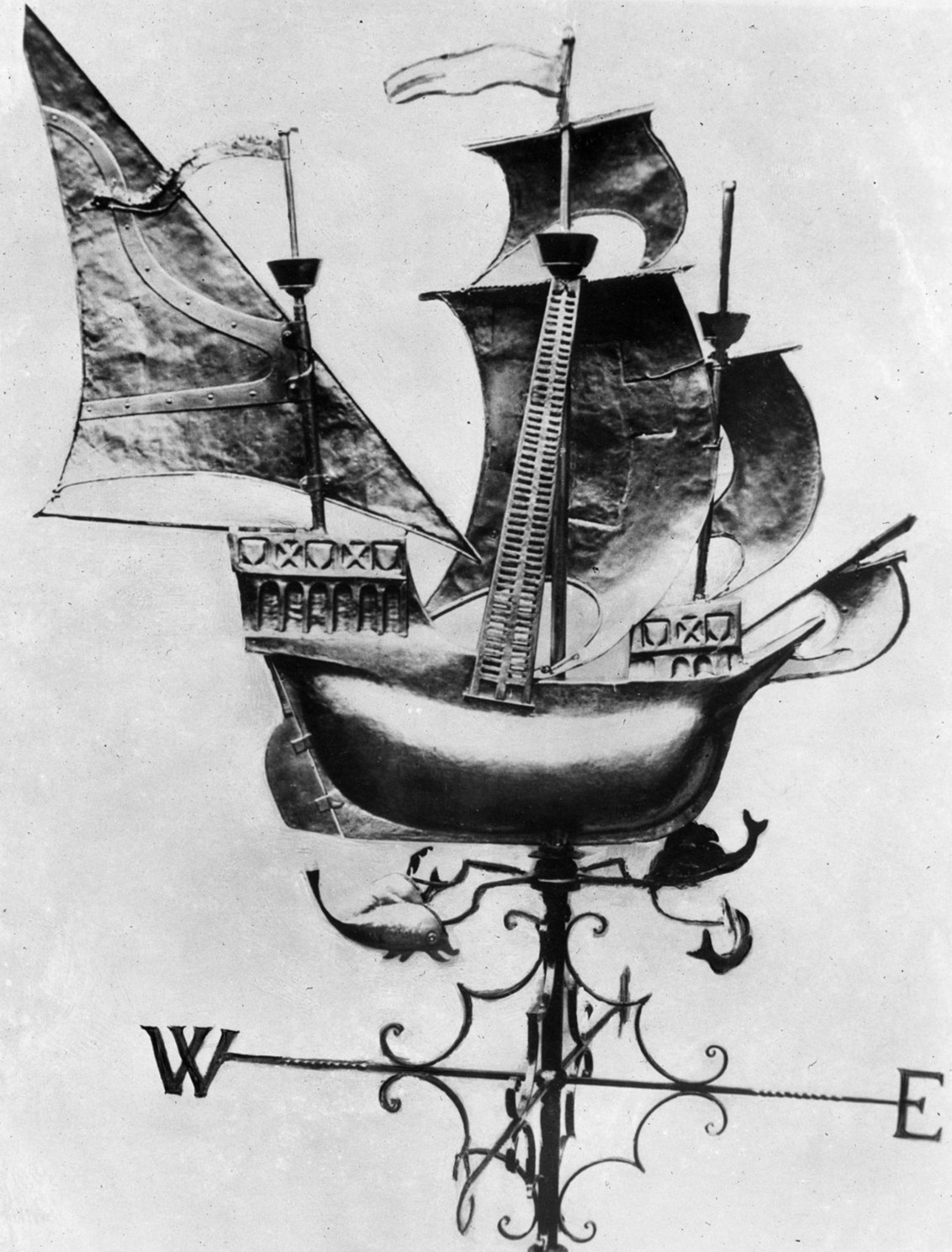
Standing in Hill Street and extending back to Albion Place, The Wisbech Social Club and Institute has been a part of the community and History of Wisbech for the last 150 years and is still offering a community facility today.
Looking at the Institute building in Hill Street you see that it is a large impressive building acquired in 1864 and substantially altered from the original two story building to accommodate its growing clubs and popularity, records show that at one stage it had largest membership in the country and was described as a model institute that others followed.
Today the front of the building accommodates a Gymnasium to the left and to the right through the double doors with the words "Wisbech Social Club and Institute" above leads you to our newly renovated Exhibition Space with customisable hanging facility. We are also working on our own history room with artifacts found in the building and from those who used the building in the past.
Walking down Scrimshires Passage from either Hill Street or Albion Place you can enter the Tower Ball room at the foot of the Clock Tower. The facility offers an ideal venue for dancers, parties, concerts, meetings and exhibitions, these are just a few uses for the Tower Ball room, with its sprung wooden floor it is the talk of the area and said to be one of the best.
The Tower Ball room sits in the shadow of the clock tower, which is one of the tallest buildings in Wisbech, each one of its three clock faces are visible from a far and greet you as you approach Freedom bridge roundabout from all directions.
The image opposite is the Galleon weather vane that sat on top of the Clock Tower for many years, but was lost when taken down for repair.
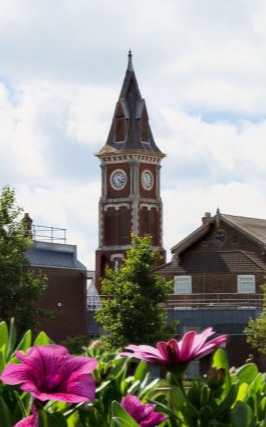
The Wisbech Institute is a large rambling building, purpose built for the benefit of the community. Fronting on to Hill Street near the Market Place, it was originally known as Alfred House. Purchased in 1864 for the princely sum of £800, of which £600 was donated from a Mr Jonathan Peckover.
The family lived on the North Brink Wisbech at Peckover House, now part of the National Trust, and were bankers whose endeavours ultimately lead to the start of Barclays Bank.
From 1852 Wisbech, the Capital of the Fens changed dramatically. The River Nene, which runs through the centre of the town, saw more and more ships docking to unload their precious cargo. The industrial revolution drastically decided where the population of England would settle and Wisbech was growing at an astounding rate.
Mr Jonathan Peckover wanted to lure the workingman and woman away from the temptations of drink and ‘the modern world’. He had a vision of starting a community centre where people could go instead of frequenting the many inns, taverns and gin houses that surrounded the fen town of Wisbech.
Mr Peckover saw a need to educate and relieve the tedium of daily life for the ‘ordinary folk’, where the working day was long and not at all well paid. Alfred House was purchased and in 1864 work began.
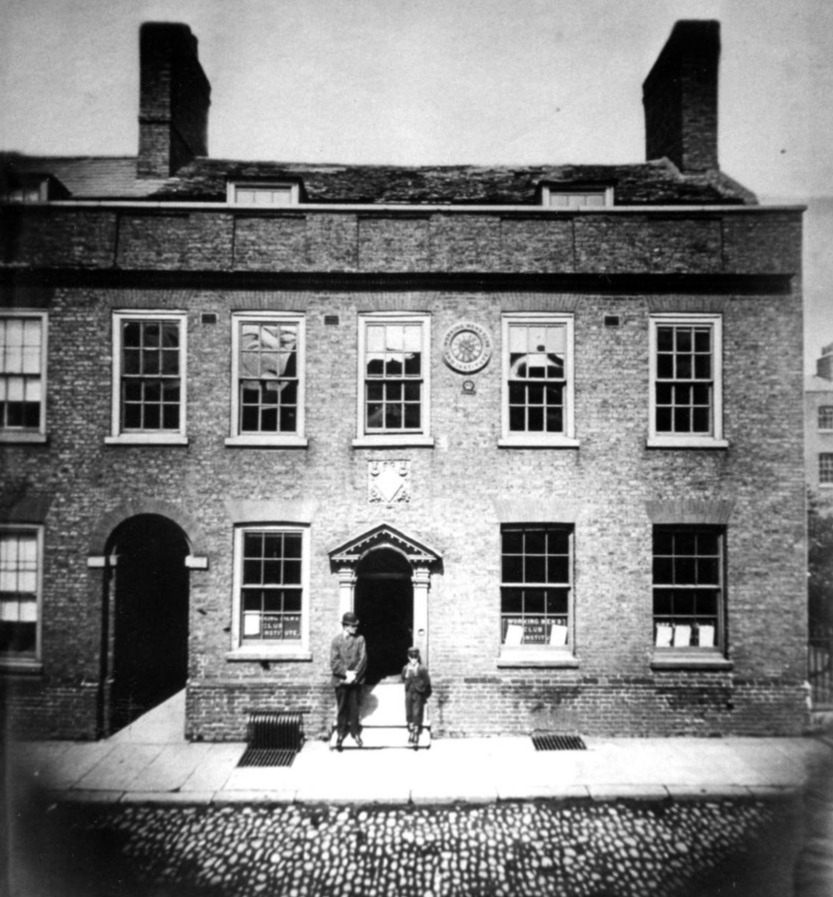
The building grew rapidly, when money was available another room was added, building laws were not as strict as they are today and when touring the building it seems bigger on the inside than the outside.
1871 saw the Reading Room and the Great Hall added but to do this the Kitchen and Out-Buildings of Alfred House had to be knocked down.
Susanna Peckover had the Gymnasium built in 1873, she was also responsible for the Committee Room and Ladies Room.
The Ladies Room is interesting as it leads from the Committee Room where the Gentlemen would meet. Not only is it several steps lower than the Committee Room but in order for the Ladies not to hear any conversation or deals the Gentleman were embarking on, double doors were fitted and even lined with felt! This can still be seen today.
1891 saw the Smoking Room and the rebuilding of the Clock Tower.
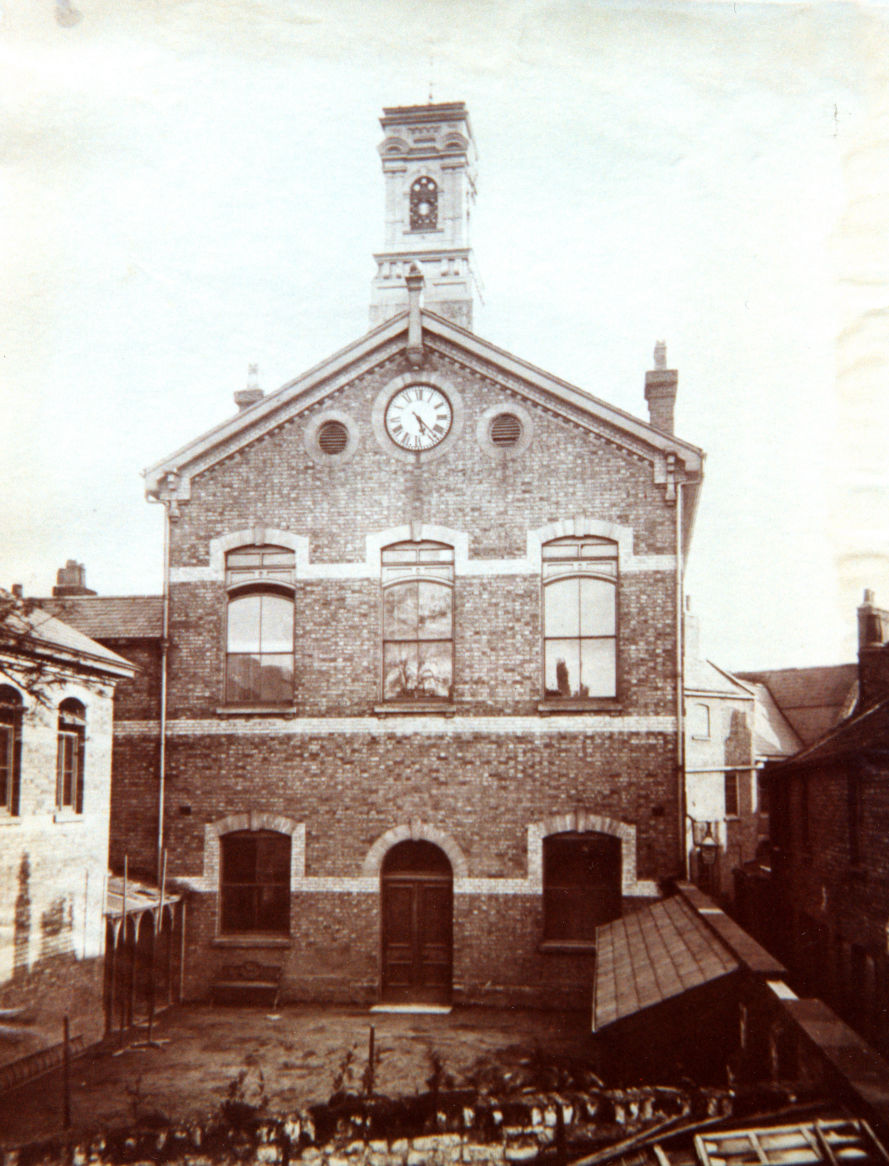
As the building grew it provided the venue Jonathan had dreamed of, providing a varied selection of clubs and activities.
During a search of the rooms books, documents and ledgers were found and we now know some of the clubs that used to meet here: The Coal Club, Angling, Chess, Horticulture, Pigeon Fanciers, Darts, Dominoes,
Language Lessons, Bible Classes, and many sports facilities, even a library homing over 15,000 books. (This is now Hill Street Printers). Once the subject had been learned, shows would be staged and prized certificates, silver cups and rosettes presented. Sales of work and Displays and Lectures were also very well attended.
Odd fellows and other ‘select’ clubs became involved and the Wisbech Institute was once the best attended Working Men’s Club in England.
A safe was found in the Committee Room but no key, so members of the Management Committee removed the back with a blowtorch. Inside silver cups were found and have since been restored to their original state. These along with other documents are available to view on touring the building.
But just giving the people an interest wasn’t enough and the Peckover family started to feed the poor of the area. The Grand Hall. accommodated up to 300 people. Meals served from crested marked, best china.
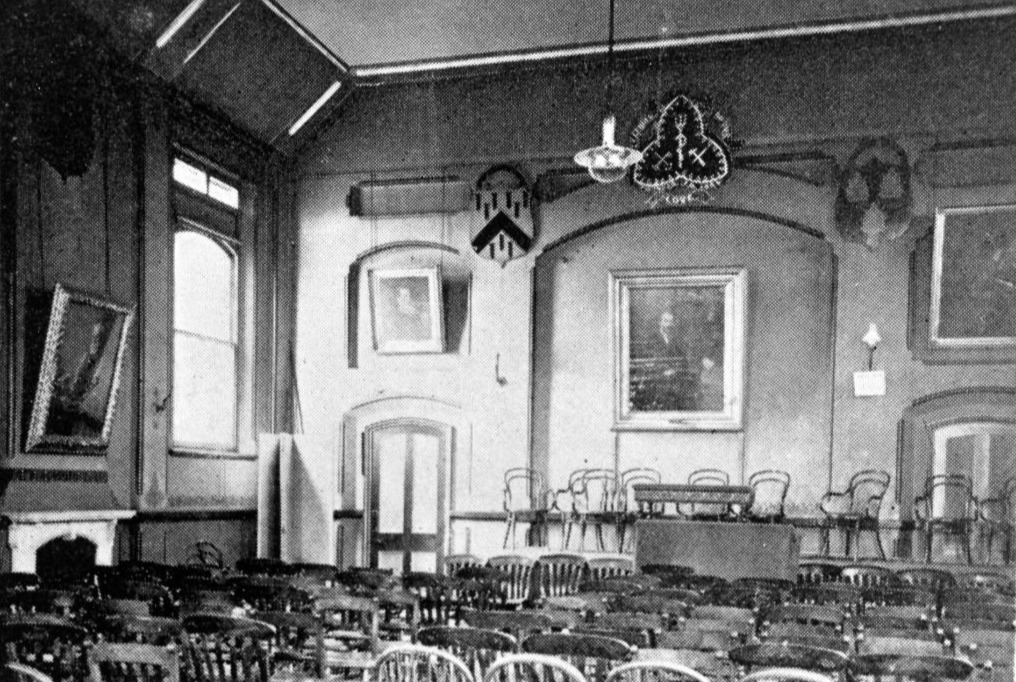
But just giving the people an interest wasn’t enough and the Peckover family started to feed the poor of the area. The Grand Hall. accommodated up to 300 people. Meals served from crested marked, best china.
The building is a standing memento to the Peckover family. It still retains many rooms of various sizes, some with ornate fireplaces displaying delft tiles. Period features such as door ledges where subs would be paid before entering the room and remnants of writing on doors. Another rather ‘ghoulish feature’ is the many testimonials recorded of Paranormal going’s on, and yes having been in the building at night it certainly does take on a different feel.

The wonderful Clock Tower houses a set of
Carillion Bells, rather like a Victorian music box where the tune is produced by wooden tubes with spikes sticking out, these in turn moved music hammers and thus created a note, but much bigger. The Clock is still wound , once a week.
The Clock Tower can be viewed by small groups, ascended by wooden steps only those in sensible shoes will be allowed to venture the heights.
The building is a standing memento to the Peckover family. It still retains many rooms of various sizes, some with ornate fireplaces displaying delft tiles. Period features such as door ledges where subs would be paid before entering the room and remnants of writing on doors. Another rather ‘ghoulish feature’ is the many testimonials recorded of Paranormal going’s on, and yes having been in the building at night it certainly does take on a different feel.
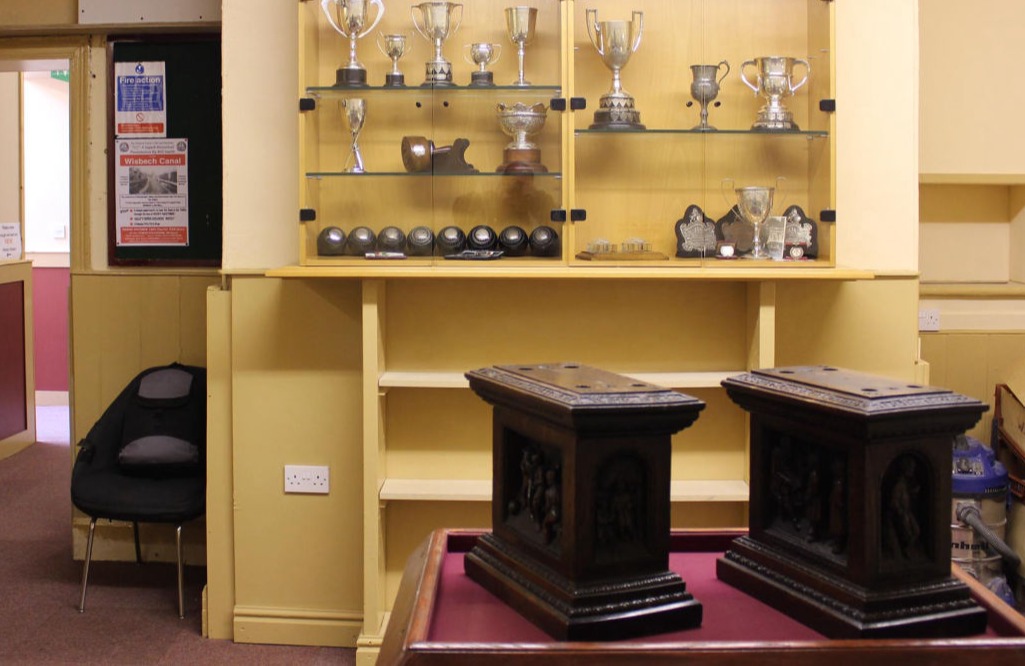
The History room contains a great wealth of artifacts, that record the history and evolution of the Wisbech Social Club and Institute and some of its members.
The History room contains a collection of trophies and medals showing the diverse groups and clubs that used the Wisbech Social Club and Institute.
Also in the History room you can view some of the minutes and records of the various groups and clubs that meet in the building of the Wisbech Social Club and Institute.
Some of the other items on display include its own logo crested crockery and some historical pictures of past members, clubs, groups and the continued development of the building.
The History room is open for viewing by appointment and during Heritage week.
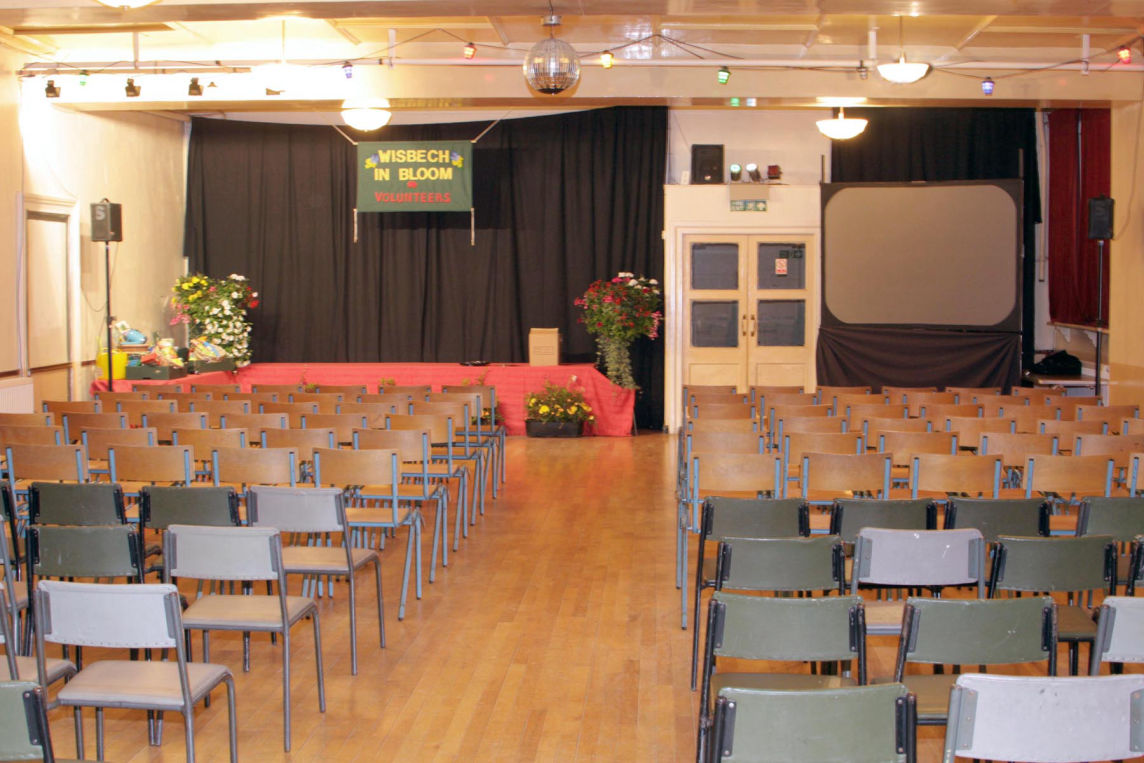
The Tower Ballroom is fully licensed for entertainment and the (sale of alcohol with temporary event notice)
Available for hire (dancing, parties, meetings, exhibitions etc).
Wooden sprung dance floor.
Theatre style seating for 120 people.
PA system and projection equipment available for hire.
Disabled friendly.
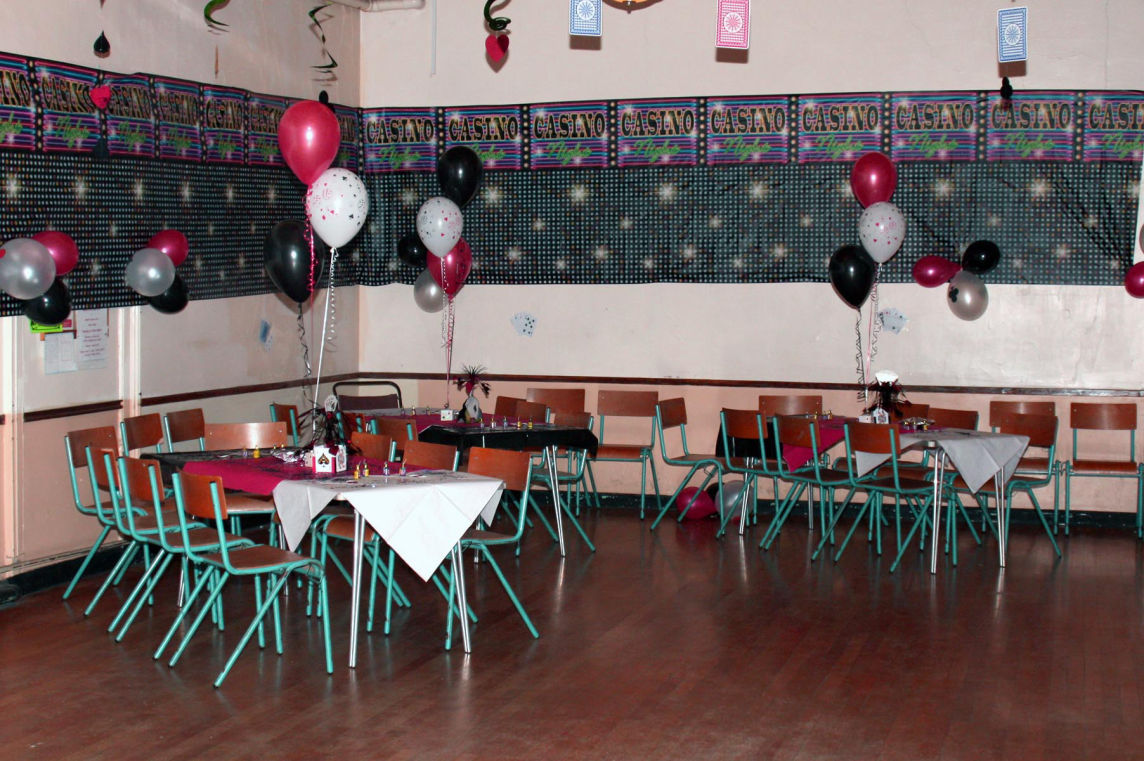
The Tower Ballroom is fully licensed for entertainment and the (sale of alcohol with temporary event notice)
Available for hire (dancing, parties, meetings, exhibitions etc).
Wooden sprung dance floor.
Theatre style seating for 120 people.
PA system and projection equipment available for hire.
Disabled friendly.
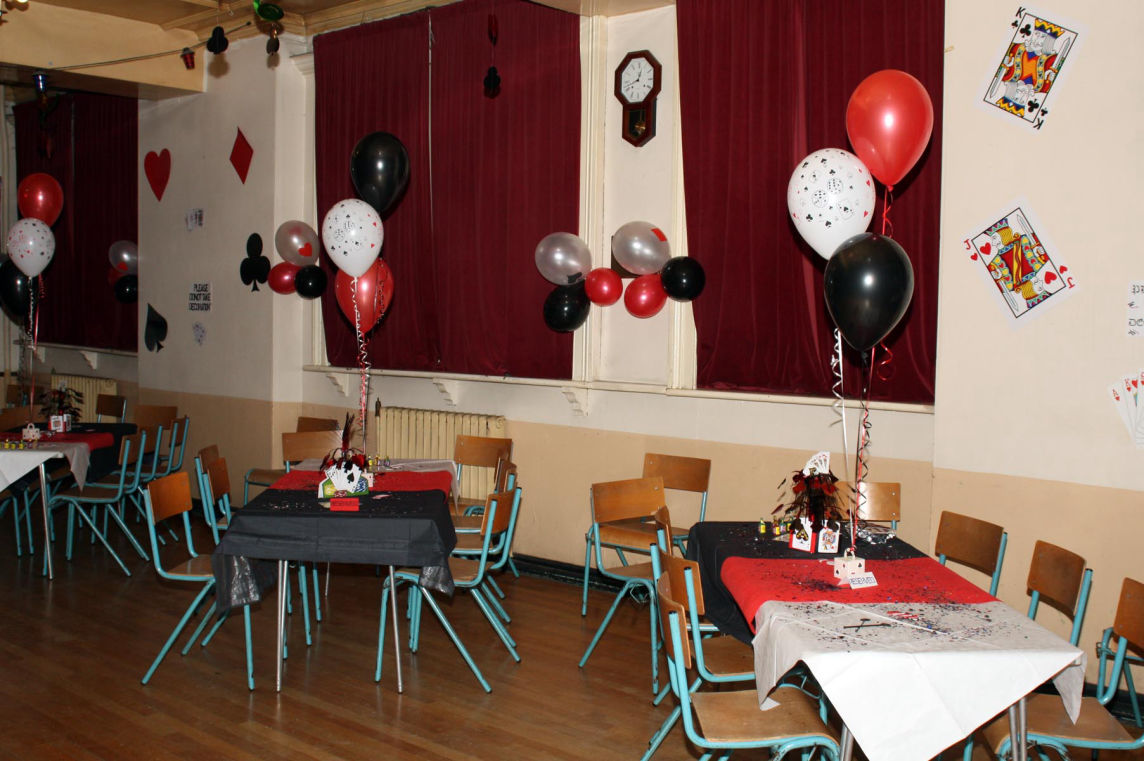
The Tower Ballroom is fully licensed for entertainment and the (sale of alcohol with temporary event notice)
Available for hire (dancing, parties, meetings, exhibitions etc).
Wooden sprung dance floor.
Theatre style seating for 120 people.
PA system and projection equipment available for hire.
Disabled friendly.